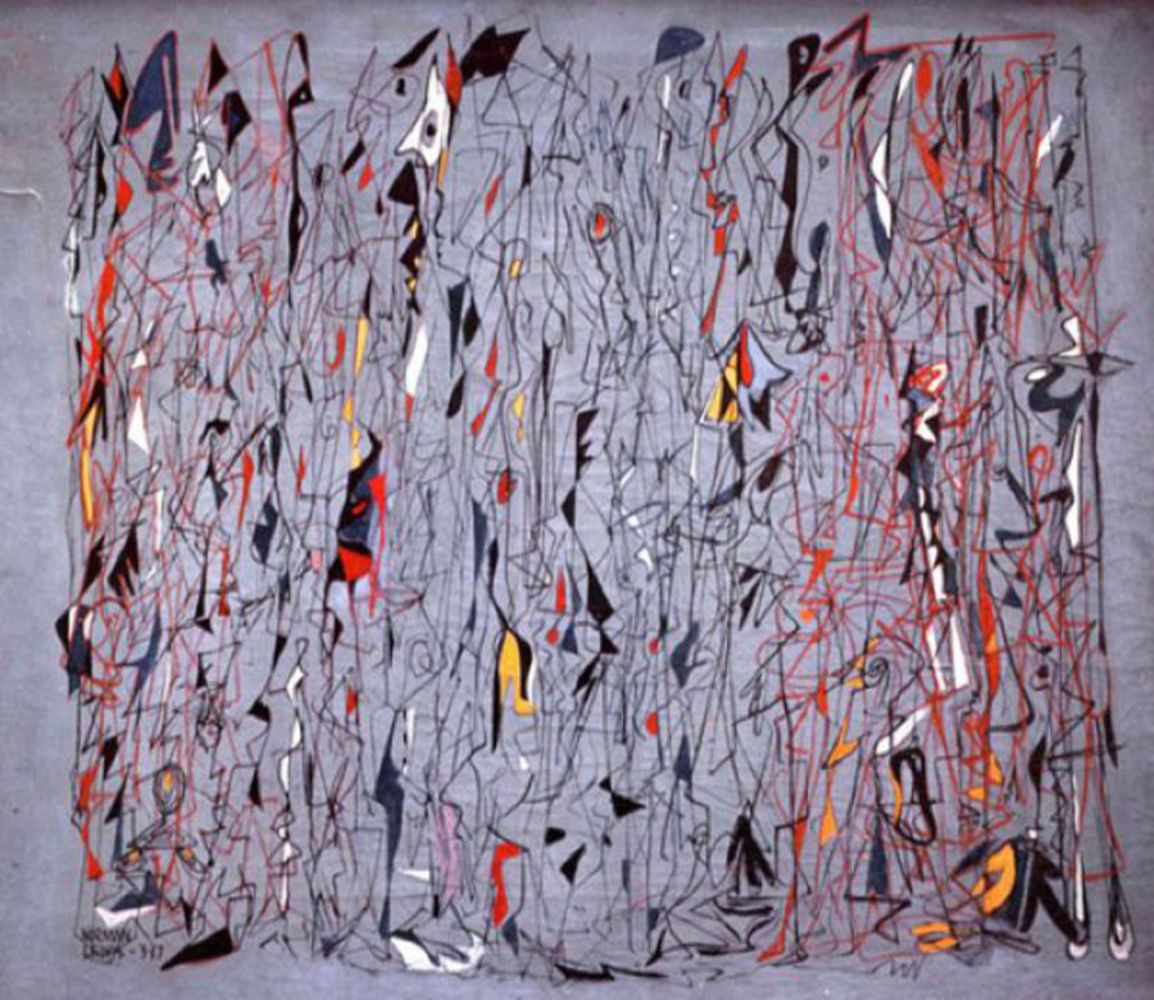Reflection
Upon actually spending time on the project. I found it most difficult to space all of the sounds in such a way that they really evoked the essence of the painting. The part that I spent the most time on with this project was studying the painting and figuring out which sound would work best where. Unfortunately I had to actually generate the sound first meaning I was working into my hour. It ended up being only about thirty seconds which is largely due to the time constraint. If I had a bit more time and more experience with audacity I wanted to try and emulate looking back from left to right which I would have done by simply flipping all the audio.
Another struggle that I had was really replicating the idea of abstract-ism. When painting once you put something on the canvas it is there for good unless you trash the entire project. With digital media you can take your time and make sure everything is placed just perfectly. However I felt like doing so would ultimately detract from the abstract nature. So I walked the thin line of abstract sounds and random noises.
One thing that I am afraid of is that I maybe just enhanced a viewing of the painting rather than really capturing the feeling. I really tried to capture by sticking with more basic sounds. Lewis uses a entirely simple colors with his paining sticking to the primary colors of red, blue and yellow, and throwing in some basic black and white as well. I used the C chord because it is the most basic of all of the chords requiring no sharps or flats to make the chords. I tried to replicate his random splashes of color with random splashes of sound.
I think the biggest drawback to working with music is that often people think of music more horizontally as music is entirely based on time while Lewis' painting is mostly vertically oriented. As well with music is is mush harder to rewind or listen to it a different way as each time it plays it is the same sound. However with an abstract painting you may see it differently each time you look at it.
All in all though I am pleased with how it turned out.
